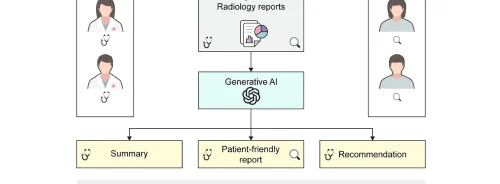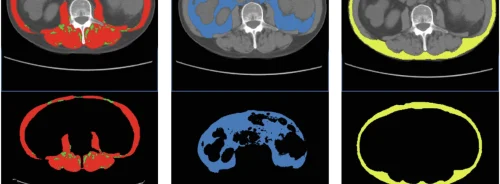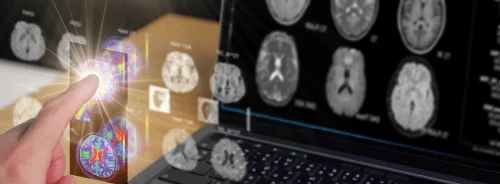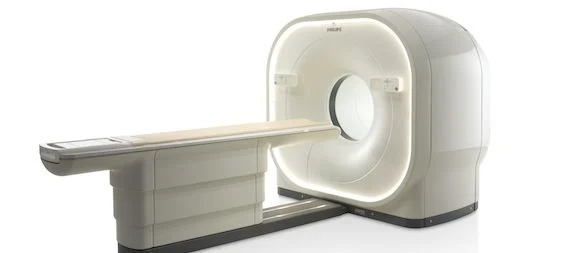Philips launched today two fundamentally new developments: its Vereos PET/CT fully digital positron emission tomography/computed tomography (PET/CT) imaging system, and its IQon Spectral CT1 spectral detector-based computed tomography (CT) imaging system.
“We work closely with radiologists to understand their biggest challenges, and incorporate those understandings in the development of innovative products like Vereos PET/CT and IQon Spectral CT to meet their complex imaging needs,” said Gene Saragnese, CEO Imaging Systems at Philips Healthcare. “These innovations demonstrate how Philips is providing radiologists with exceptional quality and accuracy in imaging at low dose rates, helping clinicians to get answers, the first time around, so that they can deliver accurate and more confident diagnoses to patients.”
“The timing and precision of disease diagnosis are critical to the successful treatment of many diseases,” commented Pablo Ros, MD, Chairman of the Department of Radiology, University Hospitals Case Medical Center and Case Western Reserve University, Cleveland, Ohio. “With that in mind, we are excited to have contributed to the development of Philips’ Vereos digital PET/CT and IQon Spectral CT systems and we will continue to collaborate with Philips to realize the potential of these next generation imaging systems.”
Vereos PET/CT
PET scans are three-dimensional images that provide insight into what is happening inside the body at the molecular and cellular level. A small amount of radiotracer is injected into the patient prior to the exam, which accumulates in the body’s tissue and organs, and decays. The PET detector captures pairs of photons that are emitted from the body during this decay process and forms the image. Based on Philips’ proprietary ‘Digital Photon Counting’ technology, the Vereos PET/CT is the first PET/CT system in the industry to use innovative digital silicon photomultiplier detectors instead of traditional analogue detectors, resulting in a step change in performance that includes approximately 2 times increase in sensitivity gain, volumetric resolution, and quantitative accuracy compared to analogue systems. These radical improvements can ultimately be translated into high image quality, increased diagnostic confidence, improved treatment planning and faster workflows.
“Personalised medicine will require a patient-specific picture of the functional processes associated with disease,” added Pablo Ros, M.D. “Accurate quantification of processes is therefore an important requirement for functional imaging in diagnosis, therapy and research. The quantitative accuracy and remarkably clear images that the new digital PET/CT system delivers are a key step forward.”
In a recent survey, nine out of ten referring physicians preferred Vereos digital PET/CT images over images taken with an analogue system. Philips has received 510(k) clearance from the US Food and Drug Administration (FDA) to market its digital PET/CT system in the US.
IQon Spectral CT1
Philips’ second RSNA introduction - its IQon Spectral CT system - is the world’s first spectral-detector CT system built from the ground up for spectral imaging. It uses color to identify the composition of an image without involving time-consuming protocols. In the same way that white light is made up of a spectrum of colors, the X-ray beam used in CT scanners also consists of a spectrum of X-ray energies. With the development of a fundamentally new spectral detector that can discriminate between X-ray photons of multiple high and low energies simultaneously, Philips’ IQon Spectral CT adds a new dimension to CT imaging, delivering not only anatomical information but also the ability to characterise structures based on their material makeup within a single scan.
After a spectral CT examination, clinicians can interpret the conventional grey-scale anatomical images, and if necessary, access the spectral information that was acquired during the same scan. The IQon Spectral CT system’s retrospective on-demand data analysis is made possible via Philips‘ iPatient platform, allowing clinicians to easily experience the benefits of spectral CT routinely within traditional radiology workflows.
Due to its accessibility, speed and accuracy, CT imaging is widely used in the diagnosis of many different diseases and injuries, totaling approximately 450 million imaging procedures globally per year. Philips has consistently driven innovation in CT, most recently with the introduction of its proprietary Iterative Model Reconstruction (IMR) technology to simultaneously reduce CT radiation dose and enhance image quality for a broad range of applications.
Source: Philips
Latest Articles
CT, Philips, PET-CT
Philips launched today two fundamentally new developments: its Vereos PET/CT fully digital positron emission tomography/computed tomography (PET/CT) imagi...










